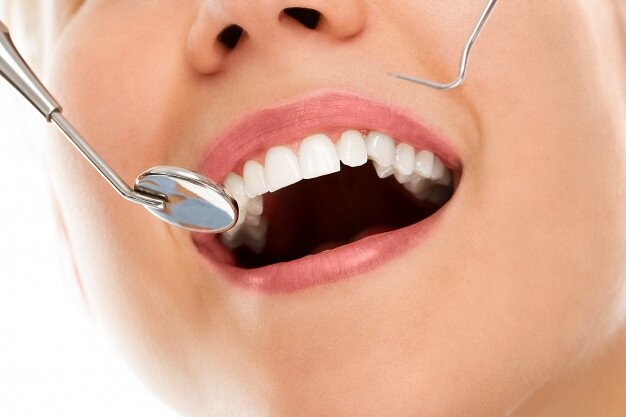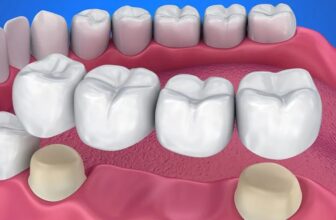
Wisdom teeth, the third set of molars located at the back of the mouth, often pose unique challenges in maintaining good oral hygiene. These challenges can include difficulties with brushing and flossing, as well as a higher risk of dental issues such as cavities and gum disease. Keeping your mouth healthy requires extra attention and care, especially if you have wisdom teeth that may require wisdom tooth extraction in Mulund East. This blog will explore practical tips for maintaining oral hygiene with wisdom teeth and ensuring a healthy mouth.
Understanding the Challenges
Wisdom teeth can complicate oral hygiene routines in several ways:
Difficult-to-Reach Areas:
Since wisdom teeth are located far back in the mouth, they are more challenging to clean and floss properly.
Potential for Impacted Teeth:
Impacted wisdom teeth can lead to gum infections, decay, and increased difficulties in maintaining oral hygiene.
Crowding and Misalignment:
Wisdom teeth can cause crowding of adjacent teeth, creating gaps and spaces where plaque can accumulate.
Partial Eruption:
Partially erupted wisdom teeth might leave spaces where germs and food particles can collect, increasing the risk of dental issues.
Tips for Maintaining Oral Hygiene with Wisdom Teeth
- Brush Regularly and Effectively
- Brush Twice a Day: Brush your teeth at least twice a day with fluoride toothpaste. Focus on all areas of your mouth, including the wisdom teeth, to remove plaque and prevent cavities.
- Use the Right Toothbrush: Opt for a toothbrush with a small head and soft bristles to reach the back teeth more easily and clean around the wisdom teeth without irritating the gums.
- Consider an Electric Toothbrush: An electric toothbrush can provide a more thorough clean, especially in hard-to-reach areas. Look for one with a smaller brush head to navigate around your wisdom teeth.
- Floss Daily
- Floss Around Wisdom Teeth: Use dental or interdental brushes to clean your wisdom teeth and adjacent molars. This helps remove food particles and plaque that a toothbrush may miss.
- Flossing Technique: Gently slide the floss between your teeth, curve it around the tooth, and use a back-and-forth motion to clean the surfaces. Avoid snapping the floss, as this can damage your gums.
- Use Mouthwash
- Antimicrobial Mouthwash: Rinse with fluoride or antimicrobial mouthwash to help reduce plaque and bacteria. Mouthwash can reach areas that brushing and flossing might miss.
- Avoid Alcohol-Based Mouthwashes: If you have sensitive gums or have recently had oral surgery, choose an alcohol-free mouthwash to avoid irritation.
- Maintain a Balanced Diet
- Consume Nutrient-Rich Foods: Support your dental health with a balanced diet rich in vitamins and minerals. Include nutritious grains, fruits, and vegetables along with lean proteins.
- Eat Less Sugary and Acidic Foods: Sugary and acidic foods can erode enamel and cause tooth decay, especially around your wisdom teeth.
- Regular Dental Check-Ups
- Schedule Routine Visits: Visit your dentist regularly for check-ups and cleanings. Professional cleanings can help remove plaque and tartar buildup that you may not be able to reach at home.
- Discuss Wisdom Teeth: During your dental visits, discuss the condition of your wisdom teeth with your dentist. They can monitor any potential issues and recommend treatments if needed.
- Manage Potential Issues Early
- Watch for Signs of Infection: Be alert to symptoms such as redness, swelling, or bleeding around your wisdom teeth. If you notice any of these signs, contact your dentist promptly.
- Address Impacted Teeth: If your wisdom teeth are impacted, they may require extraction or other interventions to prevent complications. Your dentist can guide you in the best course of action.
- Follow Post-Surgery Care Instructions
- Adhere to Recommendations: If you’ve had wisdom teeth removed, follow your dentist’s or oral surgeon’s post-surgery care instructions carefully. This includes maintaining oral hygiene and managing pain and swelling.
- Modify Your Routine: After surgery, you may need to adjust your brushing and flossing routine temporarily. Your dentist will provide specific advice on how to care for your mouth during recovery.
- Use Dental Tools for Extra Help
- Interdental Brushes: These small brushes can help clean between teeth and around wisdom teeth more effectively than floss alone.
- Water Flossers: A water flosser can help remove food particles and plaque between teeth and around wisdom teeth. It’s especially useful for people with braces or dental work.
- Stay Hydrated
- Drink Plenty of Water: Drinking water helps rinse away food particles and bacteria. It also supports oral health by keeping your mouth hydrated and aiding in saliva production.
- Avoid Sugary Drinks: Limit consumption of sugary or acidic beverages that can contribute to tooth decay and irritation.
Conclusion: Keeping Your Mouth Healthy with Wisdom Teeth
Maintaining oral hygiene with wisdom teeth requires more effort, but it’s crucial for preventing dental issues and ensuring a healthy mouth. By following these practical tips—brushing effectively, flossing daily, using mouthwash, maintaining a balanced diet, and staying on top of regular dental check-ups—you can keep your wisdom teeth and mouth in excellent condition.
If you have concerns about your wisdom teeth or encounter difficulties in maintaining oral hygiene, don’t hesitate to consult your dentist. They can provide personalized advice and support to help you manage your oral health effectively and address any issues related to your wisdom teeth, including wisdom tooth extraction in Mulund East if necessary.







